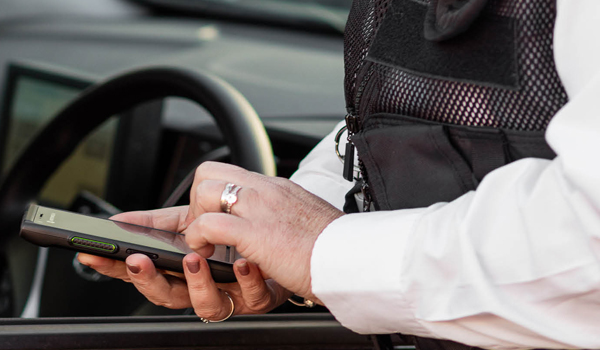System security and sharing services coming together for better policing processes
Mobile incident rooms, events, covert operations and teleworking place demands on the security of data communications, as Stephen Lewis, VP of business development at AEP Networks, tells Police Professional.

Mobile incident rooms, events, covert operations and teleworking place demands on the security of data communications, as Stephen Lewis, VP of business development at AEP Networks, tells Police Professional.
Exceptional incidents require an exceptional response from the emergency services and the police are not only expected to turn up at an incident quickly, but they are expected to stay until the situation is resolved effectively or until no further action is feasible.
To be able to achieve this, the police need to be available at the centre of such an event, in large numbers and with all of their systems and communications in place.
The mobile incident room (IR) is a very necessary part of modern policing and setting up a mobile IR is something that the police are quite familiar with. However, setting up the communications can be a major challenge and the security of those communications is the biggest challenge of all. It has to be right and there is little margin for error.
After all, extremely sensitive and critical information pertaining to an investigation will be sent from and to the IR at all times of the day and night and it must be quickly and readily available to those cleared to access the information. So, it has to be super secure.
Starting from scratch each time is not feasible. This would mean months of work to achieve the necessary levels of security in each location and that would not serve the publics interests.
A more modular approach may well provide the answer, minimising the lead time and reducing the communications costs of supporting incident investigations. Of course, the same approach should also be taken to other events that require a heightened level of security for a specified time period in a specific location, such as major conferences and events, eg, G8, Party conferences, and the Olympics.
What we are looking at is essentially a remote or tele-working infrastructure where data is secured at the end points and highly complex data encryption is applied to all data passing across the communications media, be they wired, wireless or satellite.
Using sophisticated virtual private networks (VPNs) in this way, police forces can be sure that they have the infrastructure in place to cater for their communications requirements when working remotely. A close eye then needs to focus on access control and data encryption for greater data security and peace of mind.
Access control management
Of course, blanket teleworker access raises the risk of unauthorised users accessing sensitive information. It can put privacy and confidentiality in serious jeopardy.
Access control management builds on identity management by using identity to permit, or limit, the applications and data each user can access. Granular access policies controlling access to data based on a search can be assigned based on departmental affiliation or clearance levels.
Assigning users to various groups and adding and changing groups and roles can be fast and easy, enabling the police to quickly establish their mobile bases without compromising security.
This granular access policy for network resources provides an equally beneficial advantage in audit capabilities. Audit logs that clearly illustrate what applications were accessed and what information was exchanged are becoming increasingly important to meeting regulatory requirements.
Data encryption
Teleworker access solutions must maintain the privacy of data passing across the communications networks.
There is a responsibility to the public to protect individuals personal information, to officers to ensure that personal safety is not compromised, and to partner organisations to secure sensitive shared information.
Properly assured encryption removes the risk of data being compromised on the network by protecting the confidentiality and integrity of data in transit and defending against attacks on th


